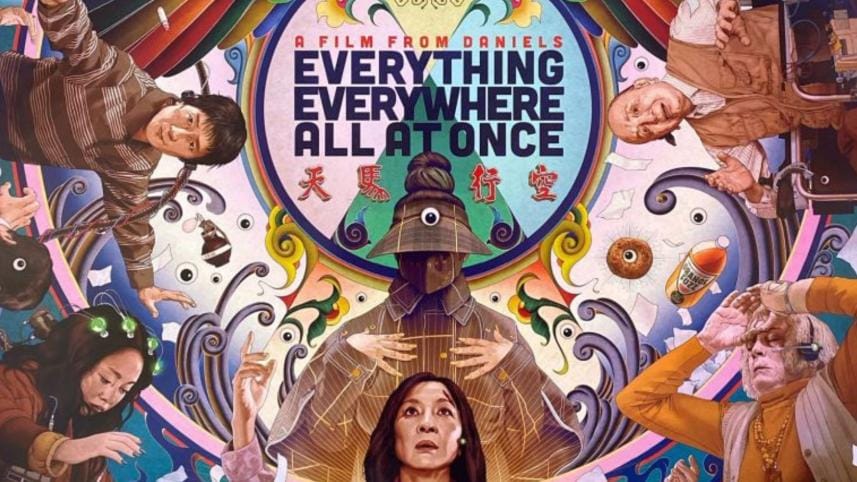Everything Everywhere All at Once and the Rabbit Hole of Existentialism

Directed by Daniel Scheinert and Daniel Kwan, and produced by the Russo Brothers, Everything Everywhere All At Once follows Evelyn Quan, played by actress Michelle Yeoh, as she attempts to balance the troubles of family, a business about to be seized by tax bureaucrats, and general feelings of worthlessness and diffidence. Amidst such dissatisfaction arrives the alternate universe version of Evelyn's husband Waymond, played by actor Ke Huy Quan. His arrival is what sets in motion the events that unfold over the course of the movie, with all of it being neatly divided into three separate acts.
While Everything Everywhere All At Once starts off and is punctuated with bouts of taut, expertly executed high-octane action, it becomes apparent within the first quarter of the movie that it packs a consequential amount of substance alongside its vibrant brand of multiversal madness. In the middle of the multitude of fully realised ponderings and arguments it touches upon, the most integral and well-actualised among them would be the discourse it brings forward regarding existentialism.
The discourse begins through a certain character in the movie; the antagonist, of sorts, who has a severe case of the existentialism blues, or nihilism in other words. As the movie progresses, this character's actions, however devious they might've seemed, start to gain the viewer's sympathy, as their point of view starts to make more and more sense. That's because the movie successfully portrays existentialism and nihilism as it is in its base conception — that is, the thought that nothing in the entirety of existence really matters. Although the legitimacy of that can be argued upon on the basis of subjectivity, the movie does its absolute best to interpret an objective version of it, whole and unbiased, and it succeeds in proving the arguments it brings up throughout the movie's narrative.
The most successful of said arguments, perhaps the integral postulation that brings all surrounding arguments together, is the thought that while it may be true that existence doesn't matter and it could be better if only the void existed, it is also true that as sentient beings, humans can still assign meaning to an existence of worthlessness. After all, all sense of meaning and worth are subjective by nature. This positive interpretation of nihilism and existentialism and how it is decided is what puts the many ponderings of Everything Everywhere All At Once at the peak where they stand.
Moreover, this is also what neatly ties all the different parts of Everything Everywhere All At Once together into the beautifully crafted and gracefully executed film it is, all done with the apt background of infinite lives set in infinite universes.
So overall, Everything Everywhere All At Once is a very good film that's been highly acclaimed by both movie-watchers and critics. And regardless of the intention behind watching, whether it be for popcorn action or philosophical actualisation, it is assured to satisfy any potential viewer.



 For all latest news, follow The Daily Star's Google News channel.
For all latest news, follow The Daily Star's Google News channel.
Comments